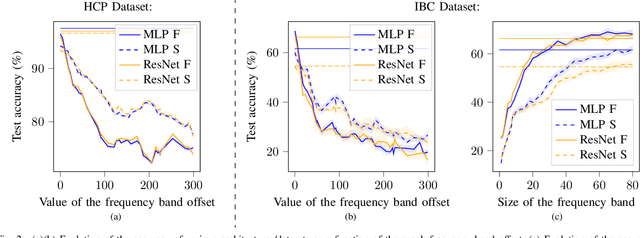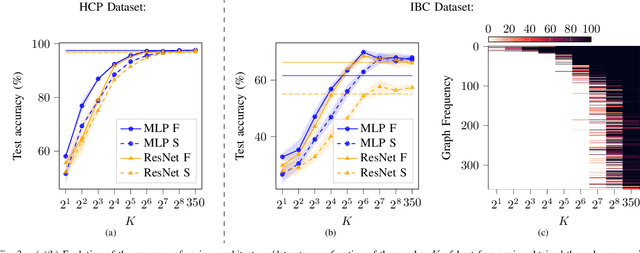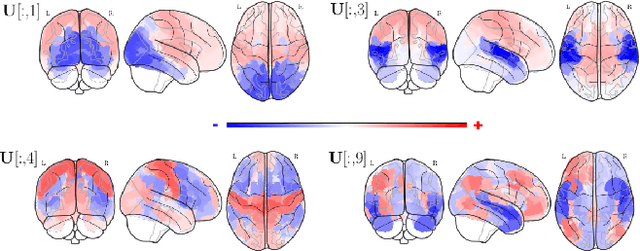Pruning Graph Convolutional Networks to select meaningful graph frequencies for fMRI decoding
Paper and Code
Mar 09, 2022



Graph Signal Processing is a promising framework to manipulate brain signals as it allows to encompass the spatial dependencies between the activity in regions of interest in the brain. In this work, we are interested in better understanding what are the graph frequencies that are the most useful to decode fMRI signals. To this end, we introduce a deep learning architecture and adapt a pruning methodology to automatically identify such frequencies. We experiment with various datasets, architectures and graphs, and show that low graph frequencies are consistently identified as the most important for fMRI decoding, with a stronger contribution for the functional graph over the structural one. We believe that this work provides novel insights on how graph-based methods can be deployed to increase fMRI decoding accuracy and interpretability.
 Add to Chrome
Add to Chrome Add to Firefox
Add to Firefox Add to Edge
Add to Edge